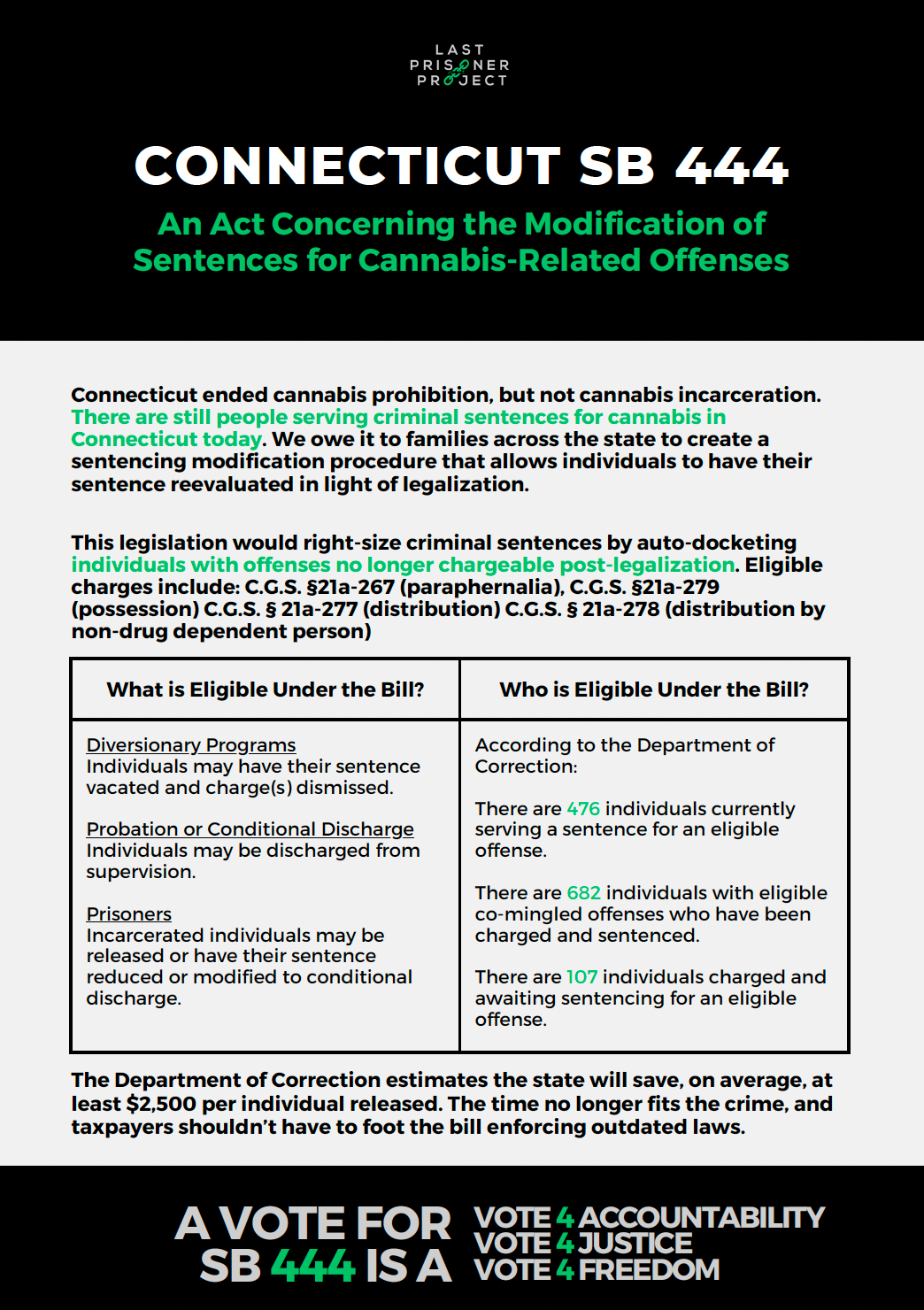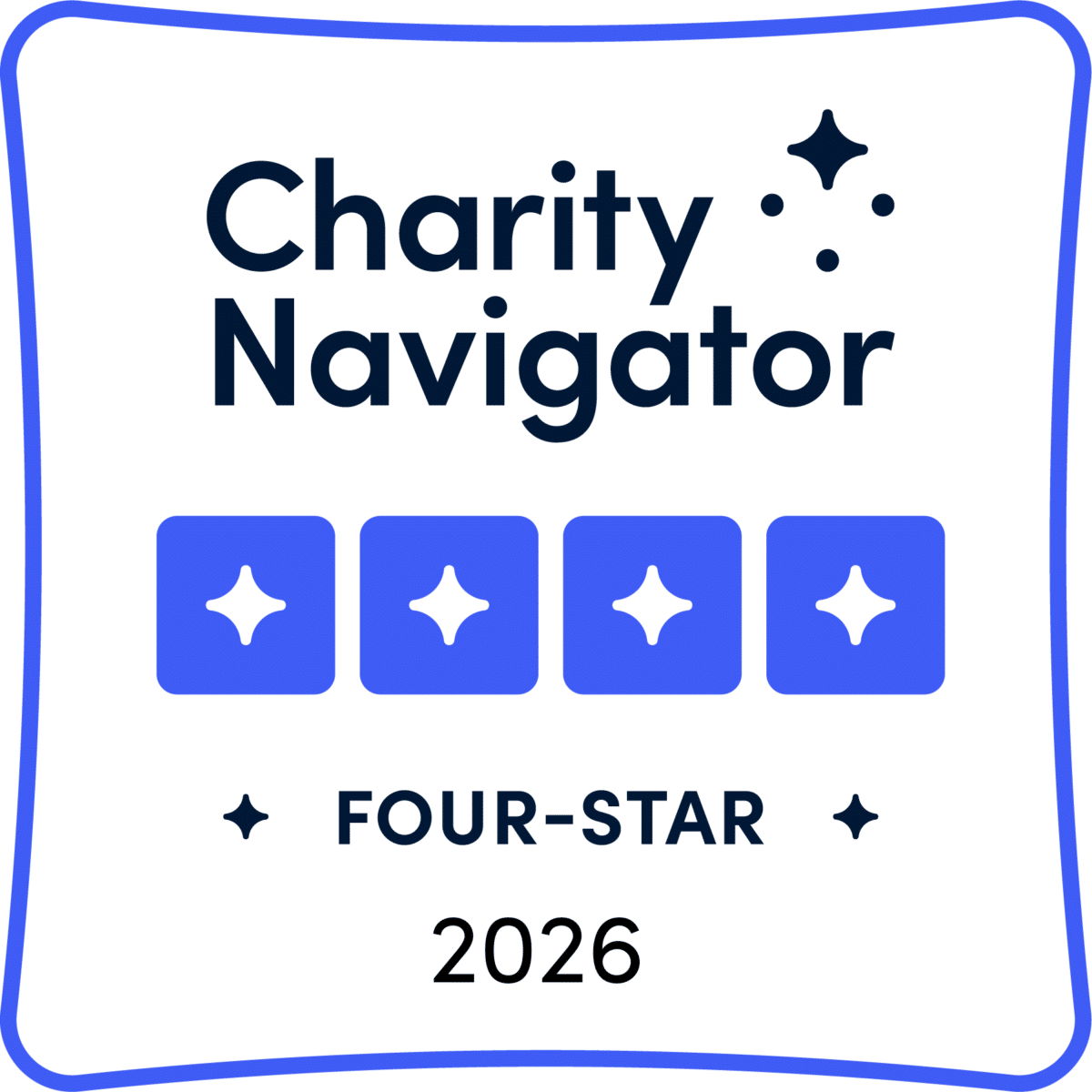Last Prisoner Project Testifies in Support of Connecticut SB 444 for Justice in Cannabis Resentencing
Testimony of Sarah Gersten
Executive Director and General Counsel
Last Prisoner Project
Before the Connecticut Joint Committee on Judiciary in SUPPORT of SB 444
March 20, 2024
Members of the Judiciary Committee,
Thank you for the opportunity to testify in support of SB 444, and, more importantly, for raising this critical bill to further a just approach to cannabis in Connecticut. My name is Sarah Gersten, and I am the Executive Director and General Counsel of the Last Prisoner Project, a national, nonpartisan nonprofit organization focused on the intersection of cannabis and criminal justice reform. I am also a resident of West Hartford. Through policy campaigns, direct intervention, and public advocacy, LPP works to redress the past and continuing harms of unjust cannabis laws. We are committed to offering our technical expertise to ensure that Connecticut fully redresses the harms of cannabis prohibition in the wake of legalization.
This Committee passed a similar measure last session, but unfortunately, that bill did not become law. Nevertheless, its introduction revealed that there were 4,248 pending cases for an offense invalidated by the legalization of cannabis. Thanks to the leadership of Chief State Attorney Patrick Griffin and the diligence of each State's Attorney's Office across Connecticut, 1,562 cases for outdated charges were dismissed. This session, we owe it to families across the state to finish the job by creating a sentencing modification procedure that allows individuals charged under outdated laws to have their sentence reevaluated in light of legalization. According to data obtained from the Department of Correction just this month, there are 476 individuals currently serving a sentence for an offense that would be eligible for reconsideration; 682 individuals with eligible co-mingled offenses who have been charged and sentenced; and 107 individuals charged and awaiting sentencing for an eligible offense.
Let that sink in: there are more than 1,200 people who continue to bear the consequences, some even currently incarcerated, for the same activities we now tax, regulate, and make a profit off of. Here in Connecticut, the legal market brought in
over $2 million just in the first week of sales, and the state is poised to earn
over one billion dollars in tax revenue over the next five years. Requiring courts to reconsider cannabis-related sentences since prohibition’s repeal is a critical piece of legalizing the right way, with accountability to the origins of prohibition. It is a data-driven policy supported by a wide body of research showing that reconsidering outdated sentences promotes public safety.
Providing a pathway to relief for individuals whose continued incarceration is no longer in the interests of justice ensures limited public safety resources like prosecution, courts, and corrections are prioritized for actual risks to the community. The practice of continuing to imprison individuals involved with cannabis activity undermines the important goals of our justice system–at the taxpayer’s expense. Directing these scarce resources at unnecessary incarceration has a poor return on investment. Connecticut has one of the highest costs of incarceration in the country. According to a recent
OLR Report, for FY 2021, the average annual cost of housing an individual in CT DOC custody was $249 per day, or $90,885 a year. Our state should not continue footing the bill for unjust penalties that are out of touch with the perspectives of its residents and that do not benefit the state’s interests.
The provisions of SB 444 are based on best practices other states have adopted to address sentences handed down during cannabis prohibition. This includes states like Virginia, where a similar cannabis-centric sentence modification bill passed the General Assembly and is currently sitting on the Governor’s desk. Rather than relying on each individual to self-identify, thereby clogging the courts with petitions, SB 444 rightly provides a straightforward court-initiated process for resentencing hearings that maximizes efficiency. If implemented, individuals in diversionary programs can have their sentences vacated and charges dismissed. Those currently serving a period of conditional discharge or probation may have their supervision lifted. Finally, incarcerated individuals would be eligible to have their sentences reduced, modified to conditional discharge, or released home.
As part of our ongoing advocacy on behalf of this bill, we have spoken to various state agencies, including the Judicial Branch, who recommended a few procedural amendments to ensure the implementation of this bill is as smooth as possible. These include provisions such as providing an eligibility look-back period that does not extend further back than January 1, 2000, the earliest year for which there are digital records, and including language to ensure cases compiled by the Judicial Branch are reviewed and validated by the Department of Correction. We recommend the bill be amended to reflect these provisions and stand ready to provide our technical assistance to ensure the bill incorporates these amendments with fidelity.
We urge the Connecticut legislature to pass SB 444, and we look forward to continuing to support the legislature in ensuring that no one continues to suffer the most harmful consequence of cannabis prohibition in Connecticut.







